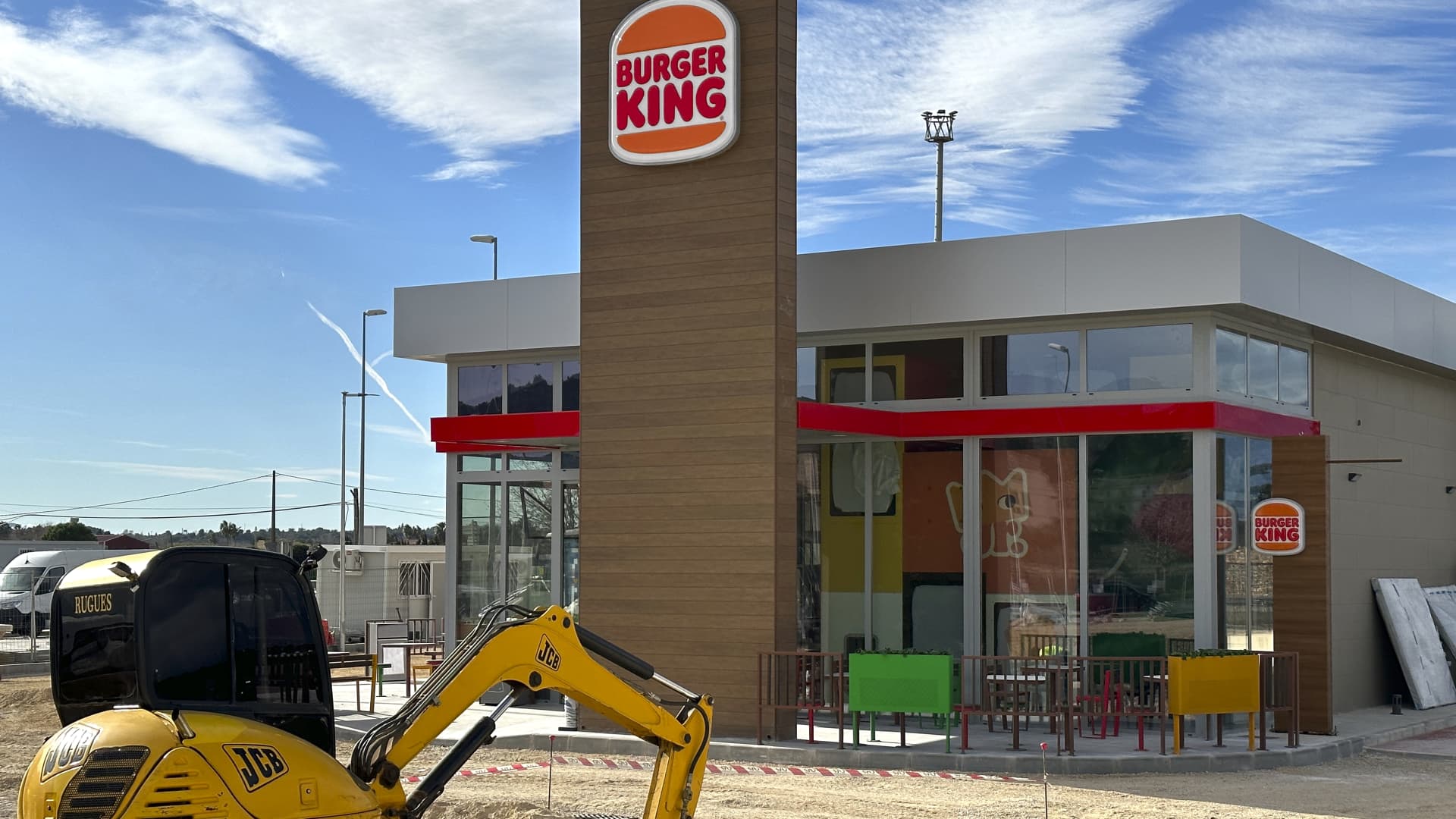Restaurant Brands International on Tuesday reported quarterly earnings and revenue that missed analysts’ expectations as domestic same-store sales growth for all four of its chains fell short of Wall Street estimates.
Shares fell about 2% in early trading following the report.
Here’s what the company reported for the third quarter compared with what Wall Street was expecting, based on a survey of analysts by LSEG:
- Earnings per share: 93 cents adjusted vs. 95 cents expected
- Revenue: $2.29 billion vs. $2.31 billion expected
The company’s worldwide same-store sales grew just 0.3% in the quarter. Burger King, Firehouse Subs and Popeyes all reported same-store sales declines in their home markets.
But so far in the fourth quarter, same-store sales trends have improved.
“October now is, for the whole business, positive, low-single digits of same-store sales, which is an improvement from what we saw in [the third quarter],” CEO Josh Kobza told CNBC.
He credited more successful marketing promotions and better consumer sentiment in the U.S. for the improvement in sales.
“If you look at some of the things that really drive finances for our guests, everything from gas prices are down, interest rates are starting to go down, inflation has really started to moderate a fair bit,” Kobza said.
Burger King’s same-store sales fell 0.7% during the three-month period that ended Sept. 30. Analysts had expected the metric to be flat, according to StreetAccount estimates. The chain is in the middle of a turnaround in the U.S., but consumers are also spending less at restaurants, reigniting the value wars between Burger King and its rivals.
Like other restaurant chains, Burger King saw consumer spending weaken over the summer, Kobza said during the company’s earnings conference call. Plus, the industry’s focus on value overshadowed other marketing initiatives, like its Fiery menu. Still, Kobza said the business is much healthier than it was when the company launched its turnaround plan in September 2022.
Popeyes reported same-store sales declines of 4%, well off the expected 0.2% gain, according to StreetAccount estimates. The chain has tried to step up its value offerings recently, first with promotion of three-piece bone-in chicken for $5 and then with the reintroduction of its Big Box deal at $6.
“We’re already seeing both offerings drive traffic and sales improvements,” Kobza said.
Firehouse Subs saw its same-store sales shrink 4.8% in the quarter, compared with an expected decline of 0.4%, according to StreetAccount. The sandwich chain is the latest addition to Restaurant Brands’ portfolio, as of 2021, and the smallest brand by footprint with just 1,300 locations as of the end of the third quarter.
Tim Hortons was the top performer, with domestic same-store sales growth of 2.3%. Tims has been growing traffic and improving its speed of service, Kobza said. But the Canadian coffee chain still fell short of Wall Street’s same-store sales growth expectations of 4.1%.
Outside of the U.S. and Canada, Restaurant Brands’ international same-store sales rose 1.8% in the quarter, just shy of estimates of 2.2%.
Restaurant Brands reported third-quarter net income attributable to common shareholders of $252 million, or 79 cents per share, unchanged from a year earlier.
Excluding items, the company earned 93 cents per share.
Net sales climbed 24.7% to $2.29 billion, largely thanks to the company’s acquisitions of its largest U.S. Burger King franchisee and its Popeyes business in China earlier this year.
Restaurant Brands on Tuesday trimmed its outlook for full-year system-wide sales growth to a range of 5% to 5.5%, down from its prior range of 5.5% to 6%.

